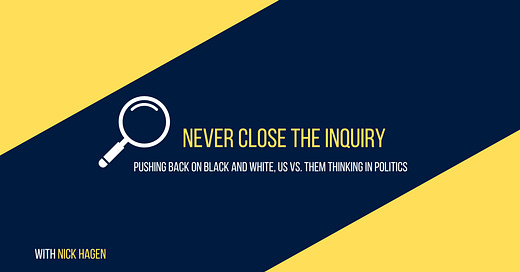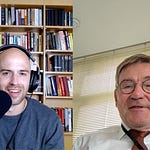Mehrsa Baradaran is a professor at the University of California, Irvine School of Law and widely recognized expert on banking law. The author of three books—How the Other Half Banks: Exclusion, Exploitation, and the Threat to Democracy; The Color of Money: Black Banks and the Racial Wealth Gap; and The Quiet Coup: Neoliberalism and the Looting of America—she began her career in New York City with the top-ranked financial institutions group at Davis, Polk & Wardwell LLP, one of the truly elite Wall Street firms, before transitioning into teaching and research. In the fall of 2024, she held a visiting professorship at Harvard Law School. Outside teaching and writing, she is a fellow at the Roosevelt Institute and board member of the American Prospect and Washington Center for Equitable Growth, and served on the Biden-Harris transition team.
Professor Baradaran and I met (virtually) to discuss The Quiet Coup, which can be purchased here. From the book jacket:
“With the nation lurching from one crisis to the next, many Americans believe that something fundamental has gone wrong. Why aren’t college graduates able to achieve financial security? Why is government completely inept in the face of natural disasters? And why do pundits tell us that the economy is strong even though the majority of Americans can barely make ends meet? In The Quiet Coup, Mehrsa Baradaran, one of our leading public intellectuals, argues that the system is in fact rigged toward the powerful, though it wasn’t the work of evil puppet masters behind the curtain. Rather, the rigging was carried out by hundreds of (mostly) law-abiding lawyers, judges, regulators, policy makers, and lobbyists. Adherents of a market-centered doctrine called neoliberalism, these individuals, over the course of decades, worked to transform the nation—and succeeded.
They did so by changing the law in unseen ways. Tracing this largely unknown history from the late 1960s to the present, Baradaran demonstrates that far from yielding fewer laws and regulations, neoliberalism has in fact always meant more—and more complex—laws. Those laws have uniformly benefited the wealthy.”
Professor Baradaran, an avowed progressive and avowed capitalist, is brilliant and a heck of a lot of fun to talk to—what a treat to go straight from talking to the great Robert George to talking to Mehrsa Baradaran. No matter your political priors, her arguments are worthy of serious consideration and engagement—it’s telling that so many on both the left and right seem to see the same problems, even as there is disagreement on potential solutions.
Please subscribe, listen, and share!













Share this post